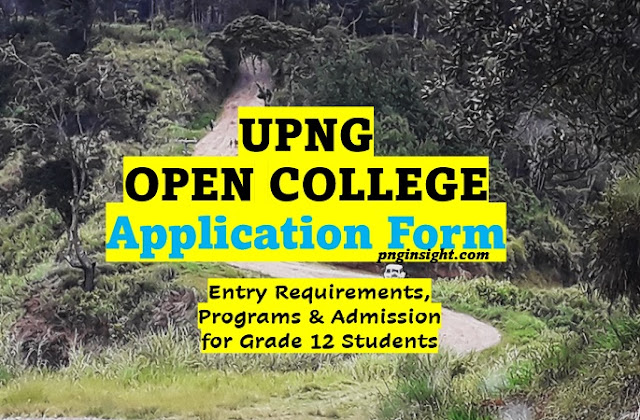The Open Campus UPNG Application Form 2023 is now available online, The applications for 2022 Grade 12 School Leavers intake into the open campus across the country closes in 25 days' time.
Visit your local open college centres for more information on entry requirements.
You can also get more information about the courses via the UPNG Open Campus via the links below.
UPNG Open Campus Programs 2023
The University of Papua New Guinea (UPNG), through its Open Campuses and University Centres in the country, is inviting students who completed Grade 12 to apply for 2023 academic.
The following programs are offered:
School of Business and Public Policy
- Business Management Foundation Year (BMFY)
School of Humanities and Social Sciences
- Bachelor of Arts Foundation (BAF)
School of Natural and Physical Sciences
- Bachelor of Science Foundation Year (SFY)
How to Get the Open Campus UPNG Application Form 2023?
Prospecting students who completed Grade 12 can apply to study at UPNG Open College in 2023.
If you are interested in enrolling, download the Application form and fill it in and lodge it at your nearest Open College Centre.
Download the UPNG Open Campus Application Form 2023
To get more information online visit the UPNG website via the links. You can also visit the UPNG Open Campus or University Centre in your province.
Click on the active links to get more information about each of the three courses offered at the open campus.
Open Campus UPNG Application Closing Date
Applications for Grade 12 School Leavers close on Tuesday 31st of January 2023
No Late Applications will be Accepted
Contact UPNG Open Campus
For more information, contact the Executive Director of Open College:
- Phone: 326 7572 or 326 7110
- Email: lahuib@upng.ac.pg or opencoll@upng.ac.pg



